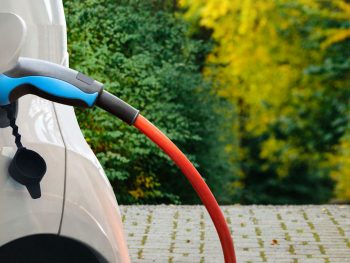Low BiK rates crucial to EV adoption, new study finds
Most drivers would not choose electric vehicles over petrol or diesel without low Benefit-in-Kind taxation rates and the availability of salary sacrifice schemes.

78% of the drivers surveyed said low BiK rates were the deciding factor in their choice to go electric
That’s according to new research from Tusker, which found over half (55%) of in-work drivers would not currently choose an EV if BiK rates rose in line with petrol or diesel cars. Furthermore, without salary sacrifice, more mass-market drivers would not be able to afford the switch to electric, according to the analysis of 2,000 consumers.
Key findings include that over three-quarters (78%) of the drivers surveyed said low BiK rates were the deciding factor in their choice to go electric. Meanwhile, 60% of drivers said they would go electric or hybrid if salary sacrifice was available. But without salary sacrifice, 61% would choose a petrol, diesel or hybrid instead.
Published ahead of tomorrow’s Autumn Statement – which, it’s feared, could bring hikes in Vehicle Excise Duty for EVs and BiK rates – the Tusker study showed financial incentives offered by the Government had supported EV uptake.
The zero VED rate, along with the zero and low rates of BiK applied to EVs since April 2020, have accelerated the growth in uptake of zero-emission vehicles. Prior to the introduction of favourable BiK rates, 97,565 fully electric cars were sold in the UK in 2019. However, in 2020, 205,770 were sold after the 0% rate came into force. This trend has continued, with more than 195,000 fully electric cars sold so far in 2022.
Looking ahead to 2023, Tusker’s own order book shows that 83% of its 21,000 drivers will opt for an EV or hybrid EV for their next vehicle and a further 12% will choose low-emission hybrid EVs. It is likely that Tusker’s EV and hybrid orders will increase to nearer 100% by the end of 2023.
But the salary sacrifice specialist added that tax stability for drivers was required to provide ongoing access to EVs – supporting the UK in the run-up to the 2030 ICE ban and with its net zero ambitions.
It’s campaigning for stability around EV adoption to help more lower-income drivers into EVs, backed by Quentin Willson, motoring journalist and the founder of the FairCharge project, which campaigns to make the switch to EVs accessible and affordable for all drivers.
Willson warned that while many ordinary drivers face being priced out of affording an EV, salary sacrifice levels up access for more people across the UK.
He added: “I believe salary sacrifice is the most cost-effective way of driving an EV. This policy is enabling lower-income drivers access to EVs, so it has to continue. Why deny nurses, council workers and office staff the chance to drive a zero-emission EV?”
Tusker’s own experience of running EVs at scale, alongside petrol or diesel vehicles, confirms the findings. Overall, EVs have been shown to have servicing, maintenance and repair costs which are 40% lower than their petrol or diesel equivalents, and a 51% lower cost of parts over the same period.
At a time when 54% of drivers are worried about the running costs of a petrol or diesel car, running an EV on a salary sacrifice scheme can enable many to keep a vehicle on the road. In fact, 58% of drivers would consider changing to an EV due to the cost of running an ICE vehicle.
Additional stats from the Tusker report:
- 53% of drivers expect to change cars in the next three years
- 61% of drivers are most concerned with the running costs of their next vehicle
- More than two thirds of Tusker’s drivers are 20% taxpayers.
- The average weekly mileage driven across the UK is just 73 miles / week
- The average driver spends £45 / week on petrol or diesel
- The average driver would save £730 in petrol a year by swapping a VW Golf for the equivalent VW ID.3
The full report is available to read and download here.












